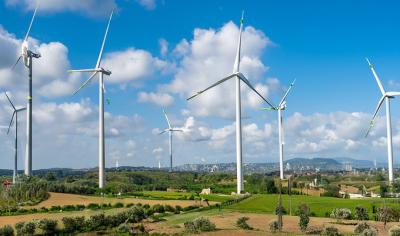
What is Sustainable Investing?
In the realm of modern finance, a revolutionary concept is taking center stage – sustainable investing. Far from just a passing trend, sustainable investing represents a fundamental shift in the way we perceive the intersection of financial gain and societal impact. In this illuminating discourse, we embark on a journey to unravel the intricacies of sustainable investing, exploring its definition, strategies, significance, selection criteria, and promising trajectory into the future.
Understanding Sustainable Investing
Sustainable investing transcends conventional financial metrics, embracing a holistic approach that integrates environmental, social, and governance (ESG) considerations into investment decisions. By channeling capital towards enterprises and initiatives that uphold sustainable practices and foster positive social change, sustainable investing seeks to not only yield financial returns but also catalyze meaningful transformation in the world.
Strategies for Sustainable Investing:
Diverse in its approaches, sustainable investing offers a spectrum of strategies tailored to suit the preferences and objectives of investors:
- Negative/Exclusionary Screening: This strategy involves excluding specific sectors, companies, or practices from investment portfolios based on predefined ESG criteria. By steering clear of industries with adverse environmental or social impacts, investors align their investments with their values.
- Positive/Best-in-Class Screening: Conversely, this approach entails identifying and investing in companies that exhibit exemplary ESG performance relative to their industry peers. By championing sustainability leaders, investors drive positive change while pursuing competitive financial returns.
Beyond screening strategies, sustainable investing encompasses other avenues such as activist investing and impact investing. Activist investors leverage their influence to advocate for corporate practices aligned with their values, while impact investors target investments aimed at addressing specific social or environmental challenges.

The Importance of Sustainable Investing
The significance of sustainable investing extends far beyond financial gain. By incentivizing companies to prioritize sustainability, investors play a pivotal role in fostering a transition to a more equitable and resilient future. Sustainable investing resonates with the ethos of socially conscious investors and mitigates risks associated with environmental degradation, social inequality, and regulatory scrutiny.
Moreover, sustainable investing has demonstrated its potential to deliver competitive financial returns, debunking the misconception that profitability must be sacrificed for principles. Studies indicate that ESG-focused funds can outperform traditional benchmarks, offering investors compelling opportunities to generate alpha while making a positive impact.
Selecting Sustainable Investments
Navigating the landscape of sustainable investments necessitates thorough research and due diligence. Investors can leverage various resources, including ESG ratings, sustainable funds offered by brokerage firms, and robo-advisors specializing in ESG portfolios. Alternatively, seeking guidance from ESG financial advisors can provide tailored investment strategies aligned with individual preferences and financial goals.
The Future of Sustainable Investing
Looking ahead, the trajectory of sustainable investing appears promising as awareness and demand continue to burgeon. As investors increasingly consider the societal implications of their investment decisions, companies face mounting pressure to enhance their ESG performance. This trend not only heralds a shift towards responsible capitalism but also presents lucrative opportunities for investors to drive positive change while safeguarding their financial interests.
Sustainable investing epitomizes the harmonization of financial prudence and ethical stewardship. By harnessing the power of capital to address pressing global challenges, investors can forge a path towards a more sustainable and equitable future for generations to come.

